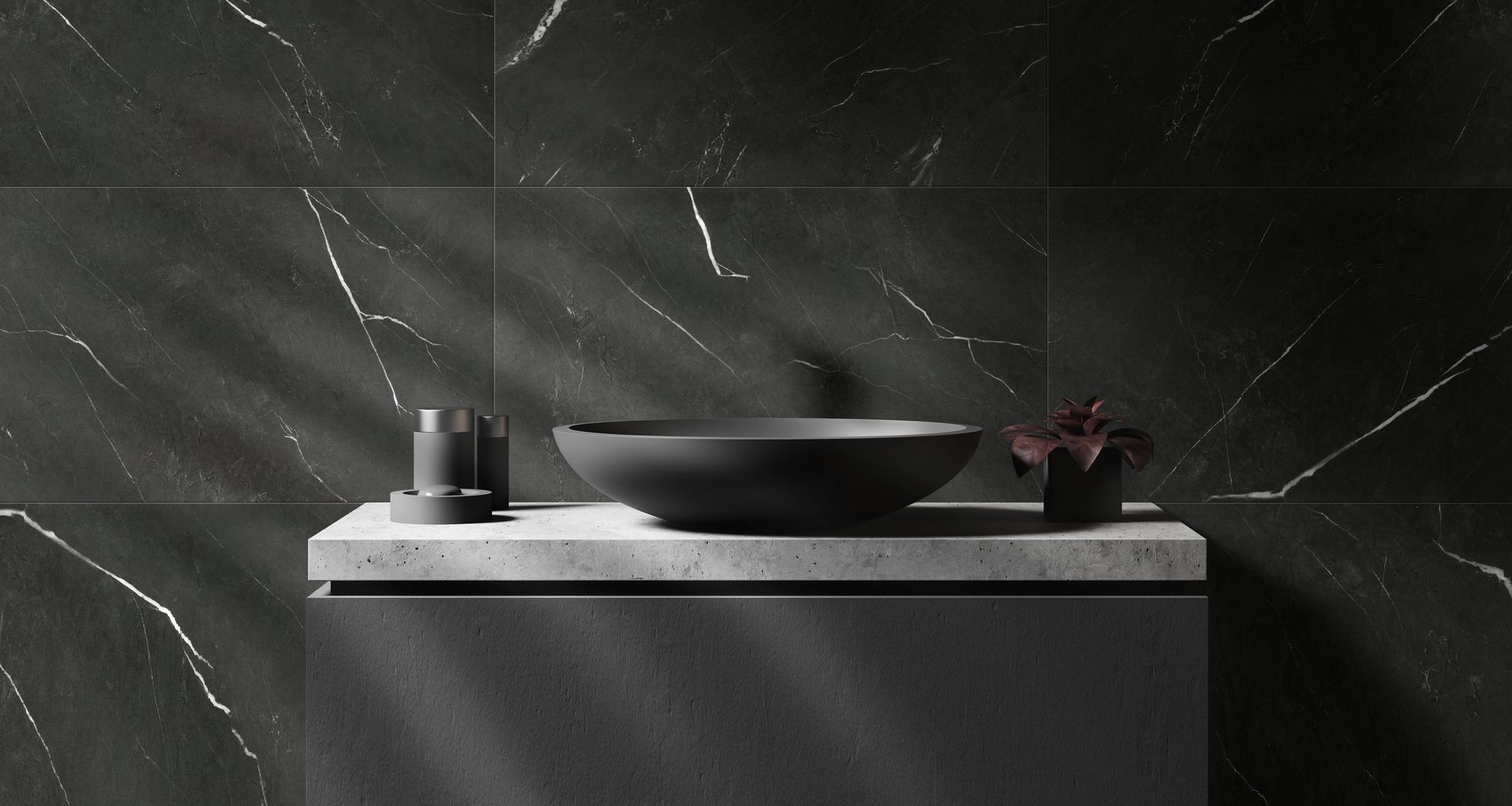The DIY tiling solution with an ingenious tongue and groove system
Written by
25 May 2023
•
4 min read

In the tiling industry, technology is advancing at almost the same rate as the churn of the trends that inform it. For several years now, larger format tiles have been a dominant style, and so technological innovation has responded in kind.
It’s not just the increase in average size that has prompted advances in technology. Market demand for minimised grout lines, easier installation, more efficient waterproofing – these are the factors drive the industry forward.
Rigid Core Board (RCB) technology has the potential to be a significant disruptor in this regard. A patented solution from PSP, when paired with the company’s DumaWall waterproof tiles, the finished product is a standout.
The composition of DumaWall includes a protective PU top layer, decorative realistic printed multi-coloured film, high-quality stability layer and RCB technology. This also results in a very strong adhesion of the decorative layer to the board, preventing the decorative layer from peeling making it the ideal substrate for wet areas in both residential and commercial applications.
It comes in two formats: DumaWall+ and DumaWall XL – the former is smaller in size with a visible grout line, while the latter is larger with a seamless join. Both utilise a tongue and groove system, providing an opportunity for DIY installation.
ArchiPro spoke to PCP Marketing & Merchant Manager Jessica Sit, who goes in depth on the DumaWall product, its benefits and its differences from traditional tiles.
ArchiPro: How does the installation process for DumaWall+ compare to traditional ceramic tiles?
Jessica Sit: With traditional ceramic tiles, grout lines are required. When installing ceramic tiles, getting the combination of screed and bed level consistency requires a level of expertise, whereas DumaWall is adhered using the DumaFix adhesive which is simply applied to the tile or wall. This means added costs and time to complete renovations and commercial projects.
Where ceramic tiles require specialised blades and tools, DumaWall+ can be easily cut using conventional cutting tools like a simple jigsaw.
DumaWall+ is also lighter in weight (5kgs per square metre) compared to ceramic tiles, making handling more efficient and does not require any special substrate.
AP: How does DumaWall's interlocking tongue and groove system facilitate easy installation for homeowners, and what benefits does this provide compared to other wall tile solutions?
JS: The tongue and groove system makes it quick and easy to install as the DumaWall tiles and panels interlock together, creating a pure DIY product.
For DumaWall+ tiles, it instantly and visually creates a grout line without the time and hassle. For DumaWall XL panels, it creates a virtually seamless join without the need of H jointers. The absence of the H jointers provides additional cost savings as they’re not required with DumaWall XL panels and can provide a more seamless finish due to its tongue and groove installation method.
AP: Can you explain how DumaWall tiles provide the look of ceramic tiles?
JS: DumaWall comes in marble and concrete styles, where the decorative realistic printed film creates the look of ceramic tiles.
AP: Can you explain the differences between DumaWall+ and DumaWall XL, and how these products cater to different types of spaces and installations?
JS: DumaWall+ come in a handy tile size of 650mm x 375mm and DumaWall XL is available in 2600mm x 900mm, making shower walls and large areas quick and simple to cover. DumaWall+ tiles when installed visually creates a grout line, where as DumaWall XL panels has a more seamless join when installed.
Both products have the same properties, however does come down to aesthetics for your bathroom, kitchen, laundry or wet wall lining space.
AP: Are there any specific maintenance requirements for DumaWall, and how does this differ from other wall tile solutions?
JS: DumaWall can be maintained using common household cleaners using a damp microfiber cloth. We do not recommend using abrasive, aggressive substances or cleaning products based on chloride or solvents.
Also, as DumaWall’s installation method is tongue and groove, there is no grout lines to maintain, thus saving costs for the homeowner.
Learn more about PSP and DumaWall.